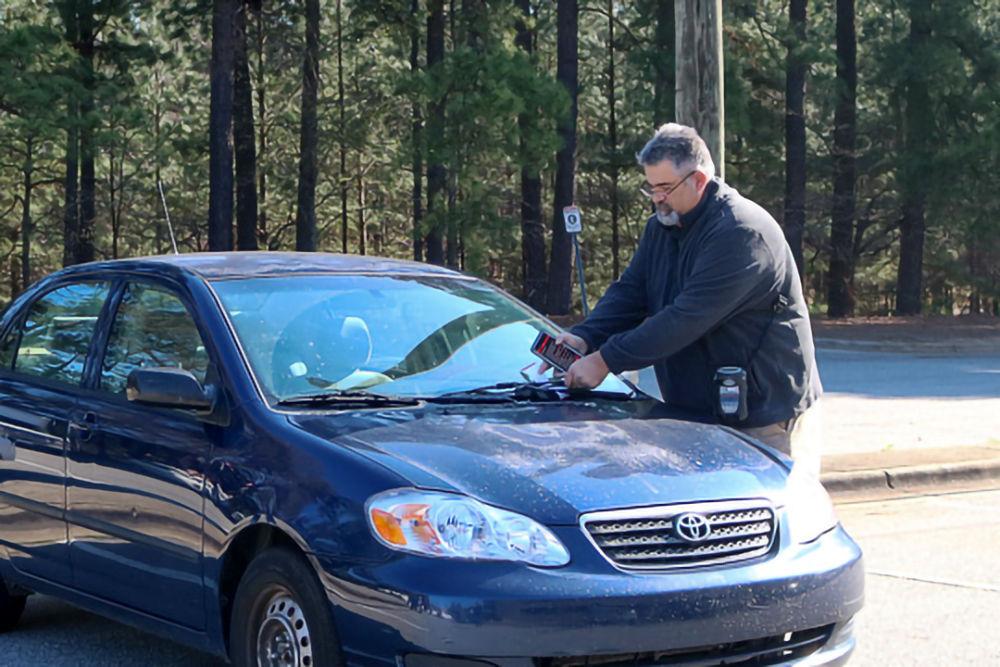As parking pass costs have increased over the past few semesters, frustrating many students interested in parking on campus, NCSU Transportation has had a significant challenge establishing fair and equitable prices for passes.
NCSU Transportation is responsible for operating and ensuring efficient, sustainable modes of transportation to fit the needs of all students on campus. The funds accumulated by the passes are needed to plan and execute future projects, maintain current transit systems and pay off debts.
Holt Craven, assistant director of finance for transportation, explained how parking fees support all of the operations that have to exist in order for the parking and transit programs to succeed.
“Parking passes have increased just as our costs for transportation have increased,” Craven said. “For instance, we have close to $2 million budgeted for special projects next year, which include deck repairs, repaving of lots, LED lighting upgrades — and those are just some of the big-ticket items within the special projects category.”
The transportation office takes the opinions of on-campus groups into consideration before establishing parking permit prices. According to Craven, the office has recently edited prices after listening to input from various organizations such as Staff Senate, Faculty Senate, Student Government and the Inter-Residence Council.
According to Parking Services Manager Chris Dobek, all of NCSU Transportation’s operational costs, including the Wolfline bus system, are factored into the price of parking permits. Students’ purchases of parking permits help to fund these costs.
“It costs about $250,000 a year to operate a single bus on the road today, and we have a fleet of 40 buses,” Dobek said. “So looking at the permit fees, we are taking all of our operational costs from transportation and parking, and we are sharing that across the parking system.”
Craven described NCSU Transportation as a business that functions on its own with no money from the state.
“Transportation is a receipt-supported auxiliary unit,” Craven said. “It basically functions as its own business. We get the student transit fee, which is intended to pay for the transit program, but that only covers about 70-75 percent of the Wolfline program. So for instance, all in this upcoming budget year… we received about $2.5 million from parking revenues that all goes to subsidize the Wolfline.”
In addition, Dobek said the transportation office only makes a very small portion of its revenue from citations, which are given an average of 150 times per day, and the use of parking citations is the way fair parking is maintained on campus.
“We are not here to make a ton of money on the enforcement side,” Dobek said. “We want to make sure that you as a permit holder have a place to park. If people sneak in without those permits and try to park, that takes parking away from you as the permit holder.”
According to Craven, NCSU Transportation spends a lot more money than they make on enforcement. While all of the parking permit revenue goes back to the Office of Transportation, 80 percent of every fine paid to transportation goes to Wake County schools.
Every state university in North Carolina is governed by the Civil Penalty and Forfeiture Fund, which requires universities to pay 80 percent of their citation revenue back to the state, which then goes back to the local school system.
All future transportation projects, such as the Coliseum Deck construction, will be completely funded by the transportation department.
Dobek encourages students to share their opinions with members in the transportation department for ideas on how to improve their services and operations.
“Any student has the ability to email the transportation department,” Dobek said. “We are always looking for ideas, references and thinking outside the box, but predominantly, we meet with the various groups on campus, as they represent different facets of campus that allow us to outreach to everybody.”








